LEGO Serious Play in the Automotive Industry
Background
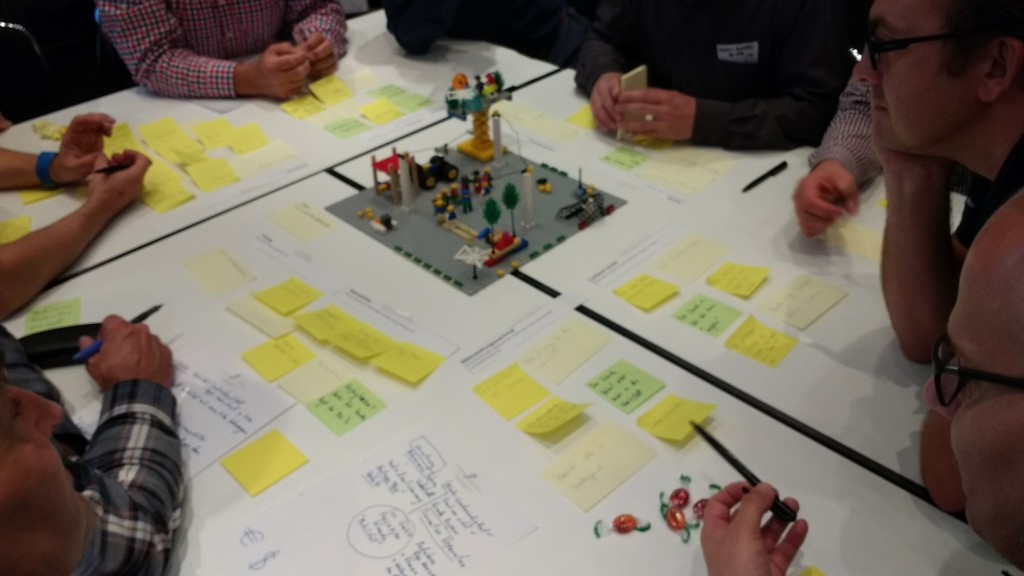
The management and team and project leaders of the Afte Sales department of a Fortune 500+ german automotive OEM came together to envision and discuss future trends of their brand and business field in "2021".
The organising team approached Plays-in-Business.com to create a strategic visioning and a brand-building large group LEGO Serious Play workshop for them.
What is LEGO® Serious Play
To put it short, LEGO® Serious Play (LSP) is a facilitated method for strategic decision-making and problem resolution in business environments. The workshop results are always directly aligned to the business goals i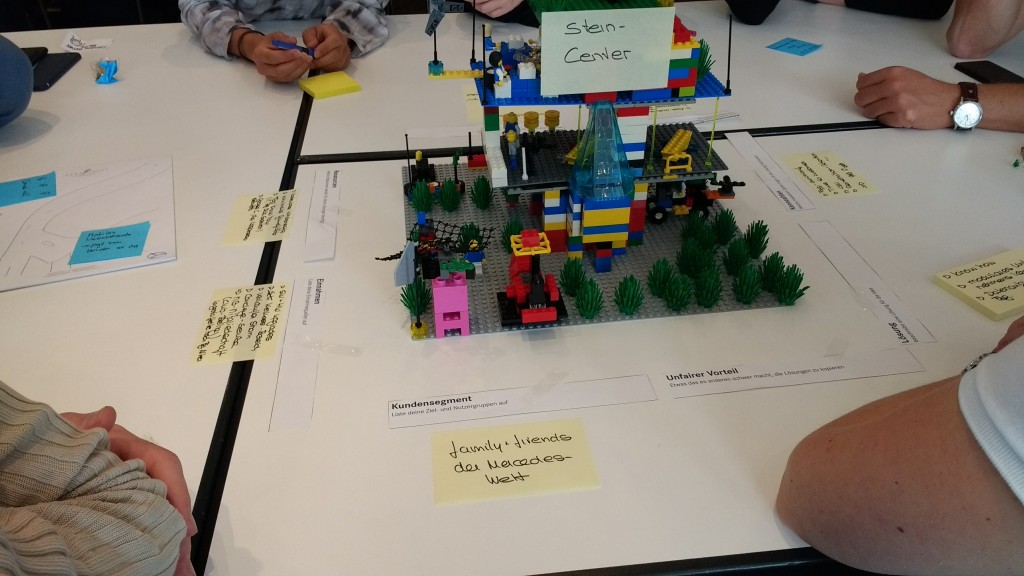 n focus and the results can be used the next day at the work floor immediately. The workshop participants are all equally involved in finding potential business solutions.
n focus and the results can be used the next day at the work floor immediately. The workshop participants are all equally involved in finding potential business solutions.
There are numerous fields of application for LEGO® Serious Play: Defining a Shared Vision & Getting Commitment; Defining Business Strategy & Vision; Developing Business Process Management; Developing Teams & Employees; Implementing Culture Change / Organ. Change; Performing Market Analysis & SWAT Analysis; Brainstorming Innovation & Ideation / Product Design; Aligning any topics to business goals in general.
Why LEGO® Serious Play Works?
LEGO® Serious Play basically grounds on four psychological pillars:
- The Knowledge is Already in the Room. - This statement means, that the workshop participants already know the answer(s) to the problem stated in the workshop. However, each participant knows parts of it. And most of the times the participant is unaware of this. These parts are buried under prejudices, biases, false assumptions and prerequisites. Unveiling and sharing this knowledge between all participants create a shared understanding which is a starting point for common decisions and problem solutions.
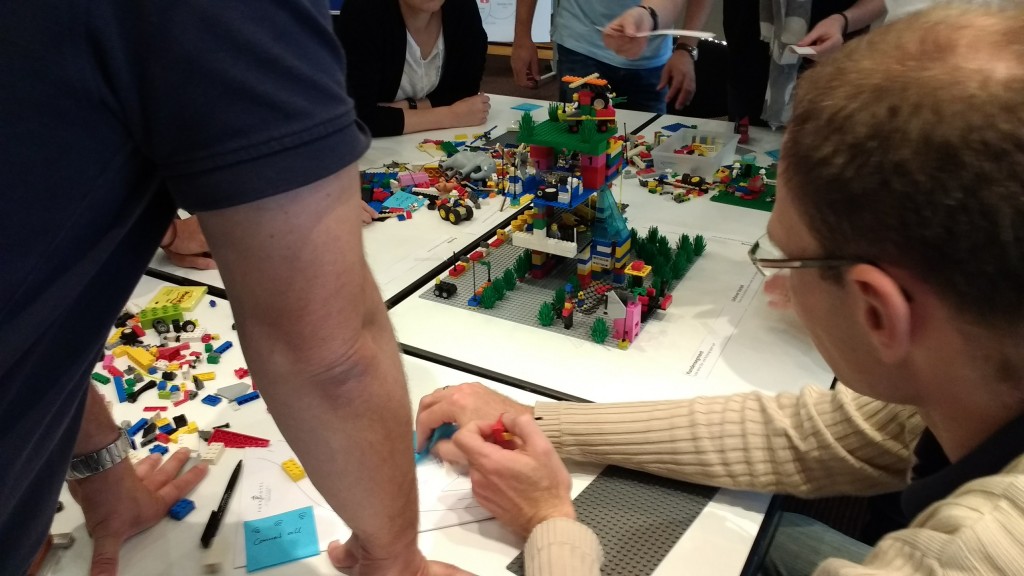
- "Building with the Hands" sparks Creativity and Innovation. - The human hand is one part of our body which assembles most of our nerves. Nerves for motoric and for sensual, tactile sensation. The hand-brain connection is very strong. Thus, building something with your hands in parallel when thinking about a problem, sparks new ideas, creativity and enables the "out-of-the-box-thinking".

- In constructing models we build theories. - The psychologists Seymour Papert and Jean Piaget showed that when we construct real objects - models - we reflect on their usage and usefulness. We construct theories and knowledge. With this new knowledge, we are able to construct much more complex objects which gain more knowledge. A self-enforcing circle, or better spiral.
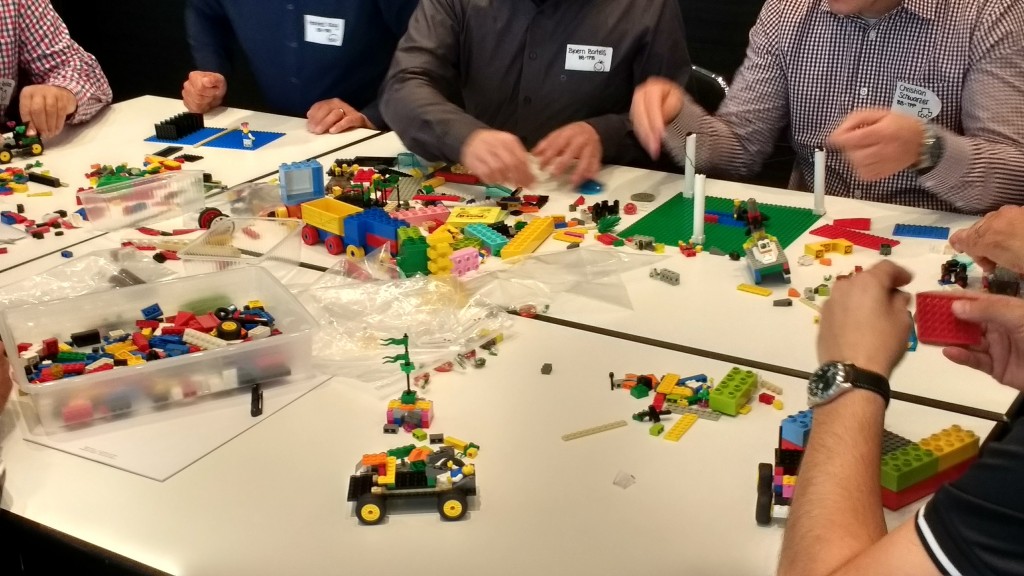
- Playing enables Emotions. Emotions enable Creativity. - Playing is an activity without intention or goal. Games are different. They have rules and (sometimes competitive) objectives. Nevertheless, in playing we do not waste time. Playing is a joyful interaction with our environment around us, objects, living beings, and people. This interaction happens often on a level of abstraction. Oftentimes, we do not use the objects directly, instead, we use and create representatives for them in our play. Playing inspires metaphors. Metaphors create emotions. Using metaphors, we engage ourselves for certain situations positively, or we calm down by reflecting the situations from distance.
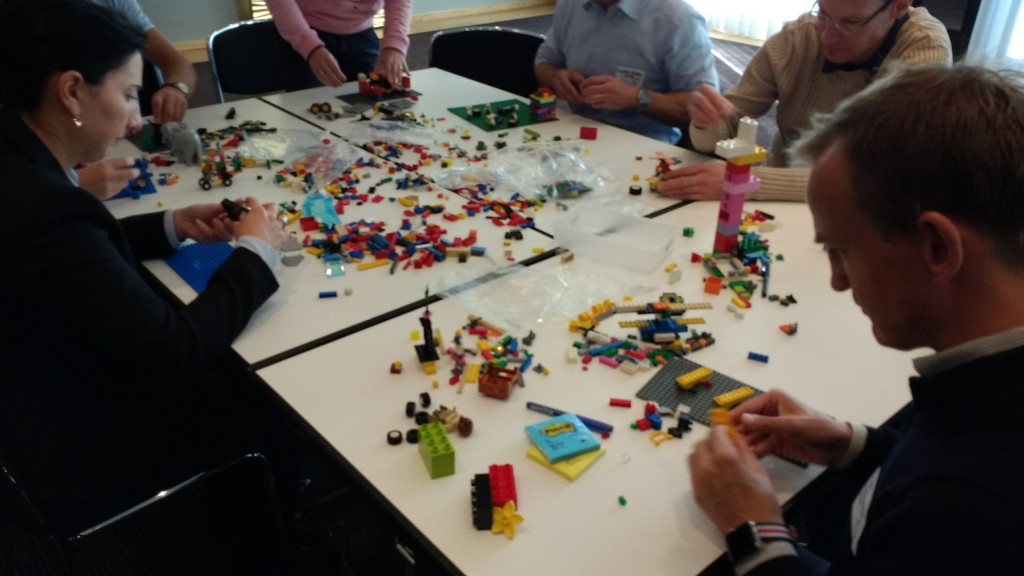
Structure and Process of the Automotive Ideation Workshop
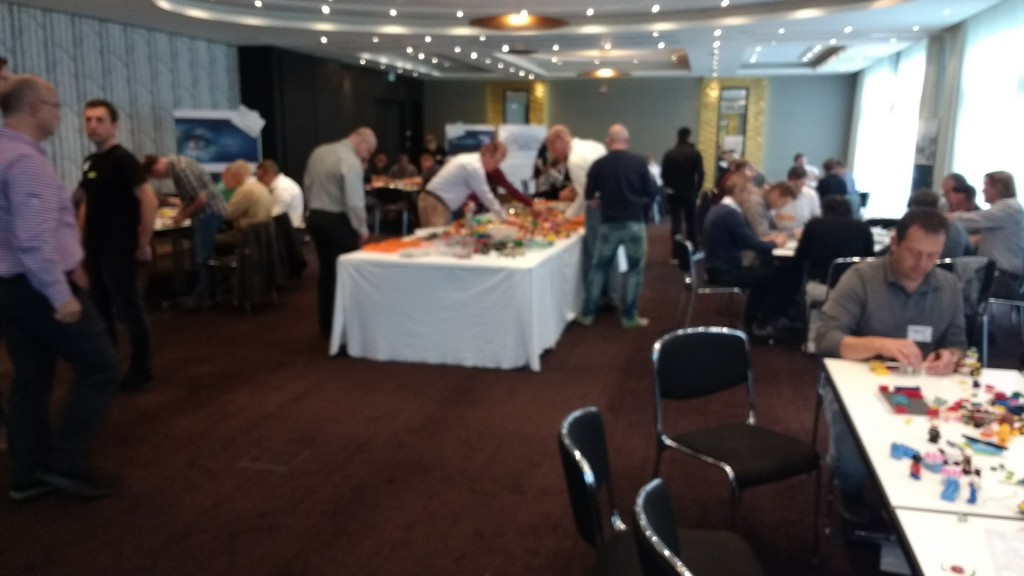 An LSP workshop is always linked to one or more business challenges. In this scenario: the automotive OEM wanted to develop new prospective, future products, and services in Aftersales Market. ((Aftersales Market are all additional sales activities by OEM and workshops after the customer bought a car. These are the maintenance of the car in a garage/workshop, other services and interactions between customer and manufacturer resp. workshop management, like mailings, promotion events, etc. ))
An LSP workshop is always linked to one or more business challenges. In this scenario: the automotive OEM wanted to develop new prospective, future products, and services in Aftersales Market. ((Aftersales Market are all additional sales activities by OEM and workshops after the customer bought a car. These are the maintenance of the car in a garage/workshop, other services and interactions between customer and manufacturer resp. workshop management, like mailings, promotion events, etc. ))
In an LSP workshop, one or more so-called facilitators ((Rule of Thumb: one facilitator per 20 participants.)) lead the participants through a structured process of reflection on distinct abstraction levels. This is done by the facilitators to raise inspiring questions, so-called challenges. The participants answer these questions by constructing a LEGO model and sharing its interpretation (to all people at the table).
The facilitator(s) design the workshop and potential questions upfront to the workshop.
In the case of our scenario "Aftersales Market 2021" the facilitators guided the participants through the following questions:
"Close your eyes and imagine. Imagine, you live in the year 2021. You open your eyes. You are in the presence: 2021!
How would public transport look like in 2021?
How would the cars look like you build in 2021?
How would you interact with your customers in 2021?
How would a workshop interact with your customers in 2021?
How would you as car manufacturer interact with your associated workshops in 2021?
Imaging new services/products you as manufacturer will provide.
Imaging new services/products a workshop will provide."
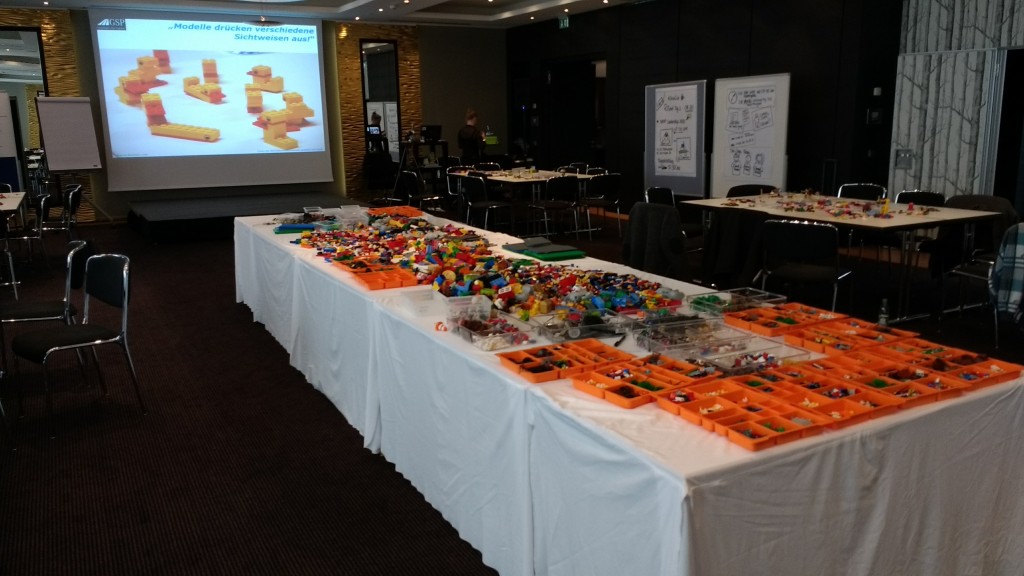 The physical workshop space was set up with seven tables per 10 participants and in the middle of the room, a huge collection of LEGO bricks were placed.
The physical workshop space was set up with seven tables per 10 participants and in the middle of the room, a huge collection of LEGO bricks were placed.
The managers reflected this scenario on different levels of abstraction. First, they constructed their individual models. Then they came to topic groups together (car look-like, interaction with customers, interaction with workshops, new products/services).

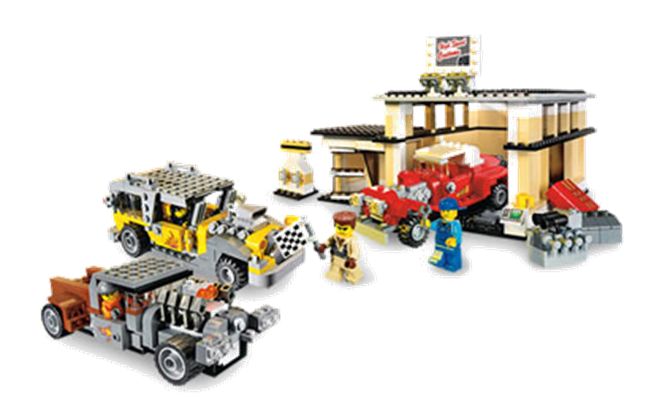
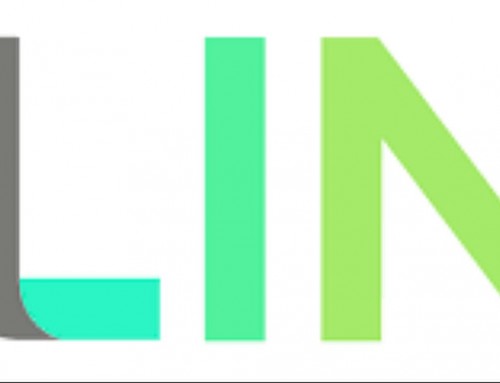

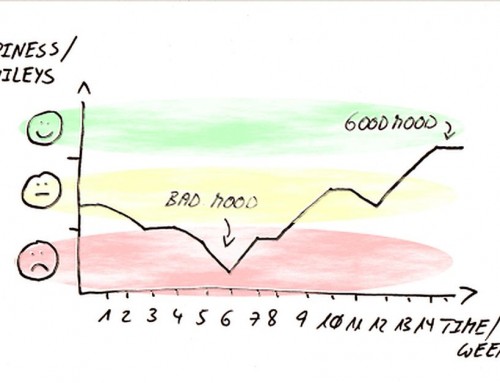
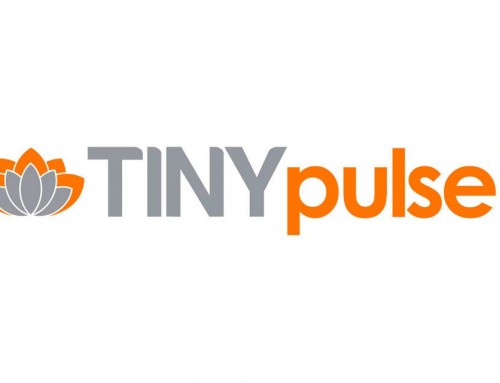
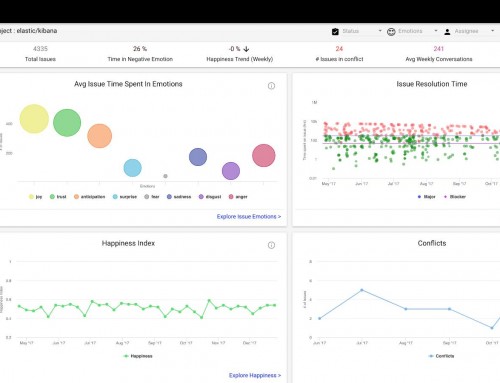
Leave A Comment